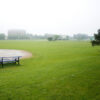
KJIPUKTUK (Halifax) – Regardless of what party forms government in Nova Scotia tomorrow, the Premier will have some time-sensitive decisions to make when it comes to back-to-school.
As anxious parents wait and children question if schools are safe to return to, classes are set to begin just three weeks away.
Paul Wozney, President of the Nova Scotia Teachers’ Union, says staff met with the province’s Chief Health Officer, Dr. Robert Strang, early this month. Wozney confirmed a plan wouldn’t be announced ahead of the election, adding, “it could be several days after the election winner is announced.”
According to Wozney, all teachers and early childhood educators in the province under the NSTU have been fully vaccinated, with exceptions for those with underlying health risks for immunization.
Wozney says 66 per cent – or two thirds – of the school population in the province remain unvaccinated. The ineligibility of children below 12 poses an increased risk of both exposure and spread of COVID-19 from classrooms into communities.
“This is the largest population of unvaccinated people in the province,” Wozney said, “and we are going to send them back into cramped classrooms where they can’t be physically distanced, where nothing has been done to improve ventilation.”
The lack of direction has caused confusion, chaos, and concern for families, says Wozney.
Wozney says he’s concerned about the lack of correspondence about masking in classrooms, or what the threshold is for a school to close in-person learning. Teachers are also looking for guidance on class sizes and social distancing.
“Almost none of the $50 million we got from the federal Liberals last year was deployed to provide in-room air filtration, even though that was one of the major purposes of that money,” he said.
Wozney is disappointed none of the parties running offered a comprehensive back-to-school plan. He says the province should take a proactive approach, considering there is so little known about the effects of long-COVID in children.
While Public Health will ultimately make the call, Wozney believes in an in-school vaccination program where COVID-19 vaccines are offered in a similar rollout to HPV or Hepatitis B.
694 cases of COVID-19 linked to school exposures in province
In Ontario, officials are worried about missing the deadline to complete air ventilation upgrades before schools open in September.
The situation is even more grim in the United States, where 1,900 children were hospitalized on Saturday alone. The state of Florida reported nearly 500 cases of COVID-19 in just the first week back to school.
But in Nova Scotia, a familiar strategy of last-minute decision-making continues to reign supreme.
The Nova Scotia Advocate wrote about the return to in-school learning in June, months after teachers were told to pack up their classrooms until September:
Less than a week into in-school learning, a record-breaking heat wave loomed over the province, creating unsafe conditions for children and teachers alike. Additionally, at least five schools have reported COVID exposures in the week since reopening.
Air ventilation and circulation systems are turned off at the end of the day and only turned back on at 7 a.m. of a school day, making buildings like a greenhouse for staff and students alike.
Even hydrating students can be a challenge. Many schools in Nova Scotia do not have safe drinking water. Additionally, the returns of rented water supply equipment and emptying of inventory in cafeterias further limits students’ access to drinking water.
The hot September weather will continue to pose a challenge, as windows in most classrooms cannot be opened without interfering with air ventilation systems.
“Because we see the Delta variant having such a severe impact on children, children being a driver of an uptick in case counts and new cases in various jurisdictions, the lack of a return to plan school is a deep concern,” Wozney said.
A freedom of information request filed by the Nova Scotia Teachers’ Union earlier this year found a total of 694 cases of COVID-19 linked to school exposures.
A communications spokesperson for the Department of Environment and Early Childhood Development tells the Nova Scotia Advocate “we look forward to sharing more soon,” indicating public health measures and in-class guidelines won’t be relayed until after the election.
“[We] are working together [with Public Health] on a back-to-school plan that will reflect Nova Scotia’s path towards Phase 5 of re-opening the province,” the spokesperson said.
See also: Brooklyn Connolly: After years of neglect, a safe return for students mostly out of reach
Check out our new community calendar!
With a special thanks to our generous donors who make publication of the Nova Scotia Advocate possible.
Subscribe to the Nova Scotia Advocate weekly digest and never miss an article again. It’s free!




What a crazy statement to make and to publish that “all teachers and early childhood educators in the province under the NSTU have been fully vaccinated”. Did the author ask any follow-up questions as to how Mr. Wozney knows the personal, medical status of all the Union’s 10,000+ members?